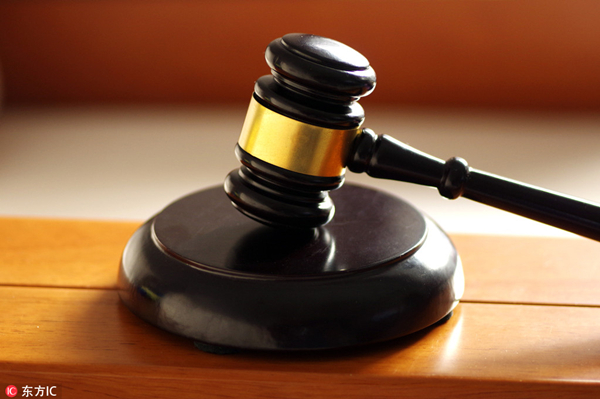New laws aid fight against corruption


[Photo/IC]
China will have more power to fight corruption and conduct international cooperation on criminal cases after two related laws were adopted by the country's top legislature on Friday.
The Standing Committee of the National People's Congress passed the Amendment to the Criminal Procedure Law, which includes the "default judgment" provisions that let a criminal trial continue even if the defendant has fled China.
One provision applies to graft-related criminal cases, and also serious incidents endangering national security and terrorist activities that have been examined by the Supreme People's Procuratorate and that need to be tried in a timely manner.
The Law on International Criminal Judicial Assistance was also adopted on Friday. It clarifies conditions and procedures for transferring criminals between China and other countries as well as specifying the duties of each judicial department. For instance, the Ministry of Justice plays the lead role in the criminal transfers.
It also clarifies procedures for requests for investigation and collection of evidence generated by China or another country.
Wang Aili, director of the Office for Criminal Law with the NPC Standing Committee's Legislative Affairs Commission, said the default judgment in the amended Criminal Procedure Law enriches anti-graft measures, showing the nation's determination against fugitives.
Zhang Xiaoming, deputy director of the international cooperation bureau under the Ministry of Justice, highlighted the significance of the Law on International Criminal Judicial Assistance. He said it meets the increasing demand of judicial assistance in the fight against graft.
It will not only play a bigger role in boosting international cooperation against transnational crimes and regulating judicial assistance practices, but also in helping the country's anti-graft legislation and the hunt for fugitives, he said at a news conference on Friday.
Zhang also noted it is a major step toward improving the country's criminal legal system, "and also a key step to implement international conventions, such as the United Nations Convention Against Corruption".
Huang Feng, a law professor at Beijing Normal University, said the law provides the legal basis for future international cooperation for fighting corruption and hunting fugitives.
"The legislative blank brought some difficulties in our anti-graft work and judicial assistance, but now we've filled the legal gap," he said, adding the clear judicial work division will also increase efficiency.
MOST POPULAR
- 1 $39.7 billion worth of deals inked at Airshow China
- 2 China announces tax relief measures to stabilize real estate sector
- 3 A look at China's economy in October, 2024
- 4 Public holiday extension announced
- 5 China's NEV annual production hits 10 million milestone amid global carbon reduction efforts
Editors' Picks
 Infographic:
A look at China's economy in October, 2024
Infographic:
A look at China's economy in October, 2024
 Infographic:
G20 at a glance
Infographic:
G20 at a glance
 Video:
Peru sees new port open
Video:
Peru sees new port open
 Infographic:
China's public holidays for 2025
Infographic:
China's public holidays for 2025
 Infographic:
Basic facts of APEC
Infographic:
Basic facts of APEC


